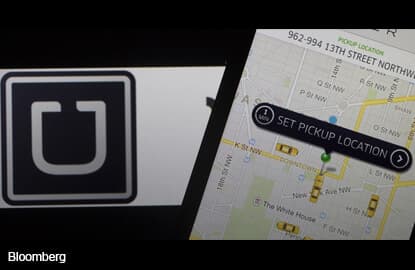
THE legal battle that is starting between Waymo, the self-driving car spin-off of Google’s former “moonshot” unit, and ride-hailing giant Uber appears to be all about trade secrets and patents. But there is a bigger issue behind it: Silicon Valley ethics and employee loyalty.
The Waymo lawsuit contends that a former employee, Anthony Levandowski, downloaded 9.7 gigabytes of sensitive data about the company’s proprietary self-driving system, in particular its main element — the LiDAR (Light Detection and Ranging) system, which scans the car’s environment with lasers and feeds information to software that makes driving decisions. He then left Google — after drawing his multimillion-dollar bonus — and set up his own company, Otto. Within months, he sold it to Uber for US$680 million, enabling Uber to catch up immediately on years of research and development.
In dismissing a similar claim in court — allegations that its Oculus Rift, the virtual reality device, was based on stolen technology — Facebook chief executive officer Mark Zuckerberg said companies often “come out of the woodwork” to scavenge pieces of high-profile tech acquisitions. But that cannot be said about Waymo in the self-driving car case.
Google is an Uber investor, and it would have been unlikely to sue one of its portfolio companies without thinking things through. The lawsuit appears to be based on a thorough internal investigation, and Uber says it is taking the allegations seriously.
But even if Google is technically right, it likely brought on its problem itself. So do other Silicon Valley giants.
Talentful, the tech recruitment company, recently analysed LinkedIn data for the employees of 15 top US tech firms, including Google, Uber, Amazon, Apple, Facebook, Twitter and Microsoft. Among them, Google emerged as the most prodigious poacher, hiring a total of 12,798 employees from the other firms. And that does not even include talent acquired with the start-up companies they worked for.
In the Waymo lawsuit, Google describes its self-driving car project as something that was built from scratch in-house. Levandowski, however, worked on autonomous vehicles long before he came to Google and before it was even interested in the industry. In 2001, he founded a start-up called 510 systems. In 2004, using technology he had developed, Levandowski made a self-driving motorcycle for a race sponsored by the US Defense Advanced Research Projects Agency. In 2011, as a Google employee working on Street View — the map feature that shows real-life views of streets and buildings — he persuaded Google to buy 510 systems in a deal that was never publicly announced. In fact, the start-up’s employees had signed agreements not to discuss the acquisition. The little company became the foundation of the search giant’s foray into mobility tech.
The incentive system Google set up for employees on the autonomous car team tied their income to certain undisclosed project milestones. It ended up being so generous that, as Bloomberg recently reported, Waymo became a sizable drag on the finances of the parent company, Alphabet. Employees were getting such big pay-outs that they no longer need the jobs, and they began leaving: With their newfound financial independence, there was no need for them to tolerate big-company bureaucracy.
The Silicon Valley ethos is not about rules and organisational structures. Outstanding engineers who generate breakthrough innovations are only guests at the big corporations, seduced into keeping still for a few years with lavish payments and nice working conditions. They do not, however, develop a loyalty toward the sources of these goodies. Their primary goal is often to advance their technological ideas — something that is hard to square with big company culture, even if the company is Google, with its deep insight into the techie psyche.
So how does one keep talent from migrating away and valuable innovations leaking to competitors? One way is to become more litigious. A 2014 paper by Martin Gango of the University of Minnesota and two collaborators shows that the more a tech employer is inclined to defend its intellectual property in court, the less likely employees working on high-value projects are to go to the competition. “By establishing reputations for intellectual property enforcement, managers can retain key knowledge workers,” the researchers wrote.
Google appears to be doing just that with the Waymo vs Uber case. Though such litigation is expensive and outcomes are far from assured, few engineers want to find themselves on the receiving end of big corporation fury. But there is a flip side: If Google establishes a reputation for going after former employees, it will have a harder time attracting major talent and buying further promising start-ups. If it wants to grow more of its talent in-house, that is a trade-off worth making. But if poaching continues to be the preferred mode of operation, the litigiousness may cost Google more than one future breakthrough. — Bloomberg